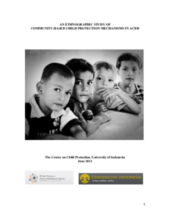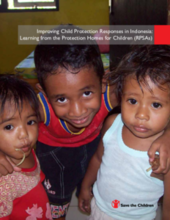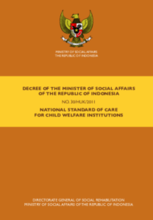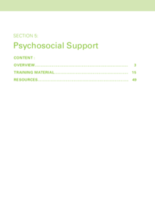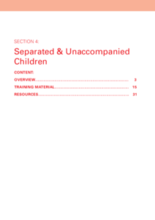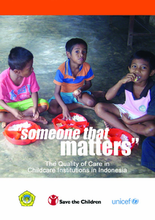demographic_data
childrens_living_arrangement
children_living_without_bio
adoption
social_work_force
key_stakeholders
Key Stakeholders
Add New DataOther Relevant Reforms
Add New Datadrivers_of_institutionalisation
Drivers of Institutionaliziation
Add New Datakey_research_and_information
Key Data Sources
Add New DataDisplaying 91 - 100 of 109
This video showcases the Family-based care program of Save the Children and its partners in Indonesia.
In this episode of “Crossing Continents” from BBC Radio 4, Ed Butler reports on a cycle of abuse in the orphanages of Bali, Indonesia.
This paper looks at how social protection is evolving in developing countries and how it relates to the vulnerabilities of children. It goes on to present the different conceptual models for protection and how they have changed and been influenced by the changing definition of poverty and the growth in transnational knowledge and policymaking.
The study described in this report set out to identify and systematically learn about the functioning of existing community-based child protection mechanisms in Aceh, Indonesia.
This report reviews the role and practice of State-established child protection residential institutions in Indonesia focused on providing services for children defined as being in need of special protection under the Child Protection law, in particular child victims of abuse, neglect or exploitation including victims of trafficking.
Indonesia’s National Standards of Care for Child Welfare Institutions is a crucial policy instrument, drafted in response to the recommendations of the United Nations Committee on the Rights of the Child, regulating the provision of alternative care for children.
Contains guidance on how to develop programs to respond to the psychosocial needs of children affected by emergencies. Includes a training schedule, worksheets, and handouts.
Contains an overview of programming to prevent and respond to separated and unaccompanied children, including care arrangements. Includes a training program.
Comprehensive evaluation of national responses and level of care standards for children without parental care in Indonesia.
This video by Save the Children highlights key research findings from an assessment on the quality of care in children's homes in Indonesia (2007), jointly published with the Indonesian Ministry of Social Affairs and UNICEF.

